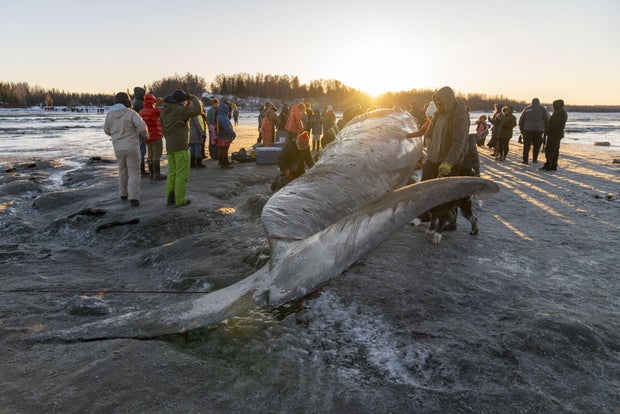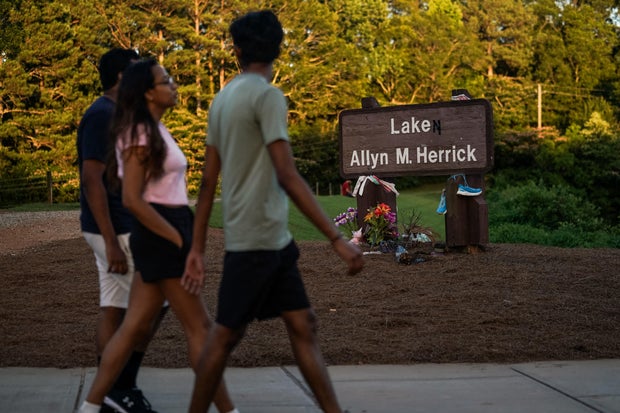CBS News
Florida Gov. DeSantis’ Canadian drug import plan goes nowhere after FDA approval

Nearly a year after the Biden administration gave Florida the green light to become the first state to import lower-cost prescription drugs from Canada — a longtime goal of politicians across the political spectrum, including President-elect Donald Trump — the program has yet to begin.
Florida Gov. Ron DeSantis hailed the FDA’s approval of his plan in January, calling it a victory over the drug industry, which opposes importation on the grounds that it would lead to a surge in counterfeit medications.
A Florida health official familiar with the importation program told KFF Health News there was no planned date yet for the state to begin importing drugs. The official asked not to be identified because they weren’t authorized to speak publicly about the program.
Florida applied to create an importation program in November 2020, just months after the Trump administration gave states the option. DeSantis, a Republican, complained publicly for years about the pace of the federal approval process under the Biden administration and in 2022 filed suit against the FDA for what he called a “reckless delay.”
Trump touted his administration’s move to bring medicines over the border in a preelection interview published last month by AARP, the advocacy group for older Americans, which supports allowing Americans to buy drugs from Canada. He vowed to “continue my efforts to protect Americans from unaffordable drug prices” in a second term.
It’s not clear whether his second administration will or can do more to help Florida and other states set up programs, because it’s ultimately up to the states to act. Colorado is the only other state that has an importation plan pending with the FDA.
DeSantis administration officials have refused for months to answer questions from KFF Health News about the program. Alecia Collins, deputy chief of staff for the Florida Agency for Health Care Administration, said in October that officials were traveling and unavailable. In mid-November, she said she still had no answers.
DeSantis press secretary Jeremy Redfern said he had been “slammed” since the first week of November and could not answer questions.
FDA spokesperson Cherie Duvall-Jones said she could not answer whether Florida had submitted documents the agency requires before the state can start importing medicines. She referred all questions to the state.
Drug companies typically sell medications for far less in Canada than in the United States, as a result of Canadian government price controls. But because of safety and efficacy concerns, federal law prohibits consumers from buying drugs from outside U.S. borders except in rare cases.
Politicians ranging from conservatives such as DeSantis to liberals such as Sen. Bernie Sanders of Vermont have long pushed for importing lower-cost prescription drugs from Canada.
In 2000, Congress passed a law allowing states to import prescription drugs from north of the border, with the caveat that it could go forward only if the secretary of the Department of Health and Human Services affirmed it was safe. That didn’t happen until 2020, when Trump’s HHS secretary, Alex Azar, made such a declaration.
Since 2022, Azar has been chairman of the board at LifeScience Logistics, a Dallas-based company that Florida is paying millions of dollars to set up its drug importation program, including warehousing its medicines.
Azar on Nov. 13 refused to answer questions from KFF Health News about drug importation, saying he wasn’t authorized to speak on the matter.
Florida’s program would not directly assist consumers at the pharmacy. It’s instead aimed at lowering costs for the state Medicaid program and for the corrections and health departments.
Matthew Baxter, a senior director at Ontario-based Methapharm Specialty Pharmaceuticals, which has contracted with LifeScience to export drugs, would not say whether Methapharm has sent any medicines over the border.
The pharmaceutical industry and the Canadian government oppose U.S. drug importation. Drug companies say importation would increase the risk of counterfeit drugs appearing on U.S. pharmacy shelves, while the government in Ottawa has warned it won’t allow medicines to be exported if Canadians could experience shortages as a result.
Florida’s predicted savings would also be relatively minor. DeSantis estimated the program would save state agencies up to $180 million in its first year. Florida’s annual Medicaid budget tops $30 billion.
Florida identified 14 drugs, including for cancer and AIDS, that it would attempt to import from Canada for its state agencies.
Camm Epstein, a health policy analyst in Saratoga Springs, New York, said drug importation is a seemingly simple concept that resonates with the public, which is why DeSantis and others have turned to the idea as a response to rising drug prices. “It riles up the crowd,” he said. “Who doesn’t want to pay lower drug costs?”
But bringing drugs over the border is complicated because of the FDA’s many requirements, including finding companies to work with — a Canadian exporter and a U.S. importer — and following a process that ensures the drugs are authentic, Epstein said.
“This was, at best, a boondoggle,” he said.
Florida has spent tens of millions of dollars to stand up its drug importation program. The state has already paid LifeScience Logistics $50 million to set up a warehouse to store the medicines. DeSantis noted the costs in his 2022 lawsuit against the FDA.
“Plaintiffs have paid their retained importer and distributor over $24 million thus far — and increasing at the rate of $1.2 million every month — even though not a single prescription pill has been imported, relabeled, or distributed, solely because of the FDA’s idleness,” the state said in its suit.
Florida’s delay may be due to operational challenges, Epstein said. “Predictably, even if they turned on the spigot there would be no flow, because Canada was not going to permit for the supply,” he said.
Colorado and Florida are among at least nine states that have passed laws allowing for Canadian drug importation. Colorado’s 2022 application to the FDA is still pending. In December 2023, Colorado officials released a report noting the state was unable to find a drugmaker willing to sell it medicines from Canada.
KFF Health News is a national newsroom that produces in-depth journalism about health issues and is one of the core operating programs at KFF — the independent source for health policy research, polling and journalism.
CBS News
Woman linked to 14 cyanide murders is convicted and sentenced to death in Thailand

A Thai woman believed to be among the worst serial killers in the kingdom’s history was convicted and sentenced to death Wednesday for poisoning a friend with cyanide, in the first of her 14 murder trials.
Sararat Rangsiwuthaporn, 36, an online gambling addict, is accused of swindling thousands of dollars from her victims before killing them with the chemical.
A court in Bangkok convicted her Wednesday for fatally poisoning her friend Siriporn Kanwong.
The two met up near Bangkok in April last year to release fish into the Mae Klong river as part of a Buddhist ritual.
Siriporn collapsed and died shortly afterwards and investigators found traces of cyanide in her body. Last year, police said they collected fingerprints and other evidence from Sararat’s Toyota Forerunner.
LILLIAN SUWANRUMPHA/AFP via Getty Images
Police were then able to link Sararat to previously unsolved cyanide poisonings going back as far as 2015, officers said.
“The court’s decision is just,” Siriporn’s mother, Tongpin Kiatchanasiri, told reporters following the verdict. “I want to tell my daughter that I miss her deeply, and justice has been done for her today.”
Police said Sararat funded her gambling addiction by borrowing money from her victims — in one case as much as 300,000 baht (nearly $9,000) — before killing them and stealing their jewelry and mobile phones.
She lured 15 people — one of whom survived — to take poisoned “herb capsules,” they said.
Sararat faces 13 more separate murder trials, and has been charged with around 80 offenses in total.
Her ex-husband, Vitoon Rangsiwuthaporn — a police lieutenant-colonel — was given 16 months in prison and her former lawyer two years for complicity in Siriporn’s killing, the lawyer for the victim’s family said.
The couple, while divorced, had still been living together, the BBC reported. Police said Rangsiwuthaporn was likely involved in Sararat’s alleged murder of an ex-boyfriend, Suthisak Poonkwan, the BBC reported. Police said that after she killed him, Rangsiwuthaporn picked her up in her car and helped her extorte money from Suthisak’s friends.
Thailand has been the scene of several sordid and high-profile criminal cases.
Earlier this year, six foreigners were found dead in a luxury Bangkok hotel after a cyanide poisoning believed to be connected to debts worth millions of baht.
CBS News
Endangered fin whale measuring nearly 50 feet found dead near Anchorage, drawing curious onlookers to beach

An endangered fin whale that washed up near a coastal trail in Alaska’s largest city has attracted curious onlookers while biologists seek answers as to what caused the animal’s death.
The carcass found over the weekend near Anchorage was 47 feet (14.3 meters) long – comparable to the width of a college basketball court – and female, according to National Oceanic and Atmospheric Administration biologists.
Barbara Mahoney, a NOAA biologist examining the whale, told the Anchorage Daily News the whale was likely 1 to 3 years old.
Fin whales are the second-largest whale species, according to NOAA Fisheries, and fully grown can reach up to 85 feet long and weigh between 40 tons and 80 tons. Strikes by ships, entanglements in fishing gear, underwater noise and the effects of climate change are among the threats that fin whales face, according to the agency.
Hasan Akbas/Anadolu via Getty Images
Mandy Keogh, a NOAA marine mammal stranding coordinator, said fin whales generally aren’t seen this close to Anchorage and that recent high tides may have pushed the animal further into the Knik Arm.
People trekked across the mudflats to see the whale, which NOAA biologists and staff from Alaska Veterinary Pathology Services had anchored to the shore Sunday so they would be able to gather samples from the animal. But even after samples are analyzed, it can be difficult to determine a cause of death because of decomposition or a lack of obvious injuries, Keogh said.
Daisy Grandlinard was among the parents who accompanied a group of children to see the whale Monday. As they drew closer, they could smell it, she said.
“It was really interesting for the kids to be able to feel it, touch the bottom because it kind of had tracks on it, like a sled almost. And just to see the size of it, that was pretty cool,” she said. “We had already studied whales a couple of weeks ago, so it was fun to see one in person and say, ‘Oh, that’s what the baleen looks like in real life,’ and ‘Where is the blow hole?’ “
Biologists hoped to complete their work Tuesday, untether the carcass and “let the tide push it or move it,” Mahoney said. “Whatever it does or doesn’t do – we don’t know.”
According to NOAA, the whaling industry killed nearly 725,000 fin whales in the mid-1900’s in the Southern Hemisphere alone. Today, the major threat to the species comes from vessel strikes.
Other fin whales have washed ashore along the Western U.S. this year. In August, a large fin whale washed ashore in Southern California and died before rescuers could get to the scene, CBS Los Angeles reported. Officials said the whale, which was not fully grown, was believed to be in poor health due to visible bumps on its skin and a thin build.
In February, a 46-foot-long whale was found washed up on an Oregon shore — emaciated, entangled and covered in what appears to be wounds from killer whales.
CBS News
How Laken Riley’s death sent “a reality shock” through the college town of Athens, Georgia

Just two blocks from the University of Georgia campus, in a downtown courtroom in Athens, Georgia, Jose Ibarra is on trial for the murder of 22-year-old Laken Riley, a former UGA student who transferred to the nursing program at Augusta University’s Athens campus.
In late February, Riley was attacked during her morning jog on a trail near the University of Georgia’s intramural fields. As the investigation and trial unfolded, members of the Athens community grappled with a shaken sense of security.
“Just because we’re on campus doesn’t mean, necessarily, that the bad parts of the world can’t get in,” said Allison Mawn, a fourth-year student. “She did everything right. She told friends where she was going, she went on a popular trail during the day. She had her tracking location on. She even managed to call for help, and still it wasn’t enough.”
The case was thrust into the national spotlight when authorities arrested Ibarra, an undocumented Venezuelan immigrant who entered the country two years ago, and charged him with murdering Riley. In the midst of the election cycle, her death quickly became a flashpoint in the immigration debate, with former President Donald Trump and his supporters raising it at rallies and President Biden responding to heckling about it in his State of the Union address.
“In an instant, all the eyes across the country are on us,” said Mawn. “Now you can’t say the name Laken Riley without thinking about undocumented immigrants and illegal immigration.”
ELIJAH NOUVELAGE/AFP via Getty Images
Students have organized vigils and prayer groups, and participated in protests, rallies and runs in memory of Riley. A GoFundMe set up by her family amassed over $250,000 in donations that will go to the Laken Hope Foundation, an organization that will “promote safety awareness for women, aid and tuition assistance for nursing students, and children’s healthcare… all causes that Laken felt strongly about.”
For many students, Athens no longer feels like the safe haven they once thought it was. To ease fears, University of Georgia President Jere Morehead announced a $7.3 million campus safety initiative. The campus has been fortified by an expanded university police force, hundreds of additional lights and security cameras and multiple emergency call stations and license plate readers.
ELIJAH NOUVELAGE/AFP via Getty Images
Over the past months, “there was an expectation that we would magnify those efforts,” said P. Daniel Silk, the University of Georgia’s associate vice president for public safety. “We want to be more safe and more secure tomorrow than we were yesterday.”
While the Athens community waits for justice to be delivered, students bustle around campus, walking under the newly installed street lights, passing by additional emergency call systems and easing into a heightened security presence. Classes may go on, but the campus and community are changed.
“Regardless of what the verdict is, unfortunately we still lost a student. We still lost a life and nothing’s gonna change that,” said Mawn. “Things are never going to be a hundred percent the same for any of us here.”











